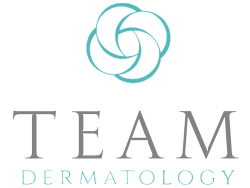Dermatology
Practice in Houston.
& Conditions.
In-person or Online.
Appointments
Available

General & Cosmetic Dermatology in Houston, TX
Team Dermatology
Team Dermatology has two dermatology clinics, one in Houston and the other in Sugar Land, both of which are conveniently located in Texas. Team Dermatology’s board-certified dermatologists are committed to providing high-quality medical, cosmetic, and surgical dermatology care to their patients. Our experts are motivated by a desire to help each and every patient improve the health and beauty of their skin.
We take pleasure in tailoring treatment plans to each patient’s unique requirements. We make sure to offer a wide range of medical skin care treatments to treat acne, rashes, warts, psoriasis, eczema, rosacea, and hair loss, among other disorders, at Team Dermatology. Exams and treatments for advanced skincare, such as annual skin checks and mole mapping, are also available. Whether you have a medical problem such as acne or psoriasis or simply wish to improve your cosmetic appearance, our friendly and skilled staff is always glad to help you look and feel your best.
Our Providers

About
Dr. Asra Ali
Dr. Asra Ali is a board-certified dermatologist practicing both medical and cosmetic dermatology. Dr Ali believes her primary responsibilities as a dermatologist is in giving personal attention to each patient by addressing their needs.

About
Laura Nguyen
Laura Nguyen, PA-C is a board-certified physician assistant practicing general dermatology at Team Dermatology in Sugar Land.

About
Kimberly alvarez
Kimberly was born and raised in the Houston area. She earned a Bachelor of Arts in Health and Society from the University of Texas at Austin before completing her Master of Physician Assistant Studies (MPA) at West Coast University - Texas.




Trust, Excellence, Advocacy, Making A Difference
The Team Dermatology Difference
Dermatology
Cosmetic
Follow us on instagram
Testimonials
WHAT OUR PATIENTS SAY
9225 Katy Fwy Suite 404
Houston, Texas 77024
- Phone: (832) 572-5533
- Fax: 832-975-0336
- Email: contact@greatskinforall.com
1435 Hwy 6 Suite 250
Sugar Land, Texas 77478
- Phone: (832) 572-5533
- Fax: 281-800-1350
- Email: contactsl@greatskinforall.com
Ask A Question
Fields marked with an * are required
We Accept All Major Insurances
If you have any questions about your coverage, please give our office a call. If you do not see your insurance plan listed, please call our office to see if we accept your insurance! We look forward to speaking with you!








